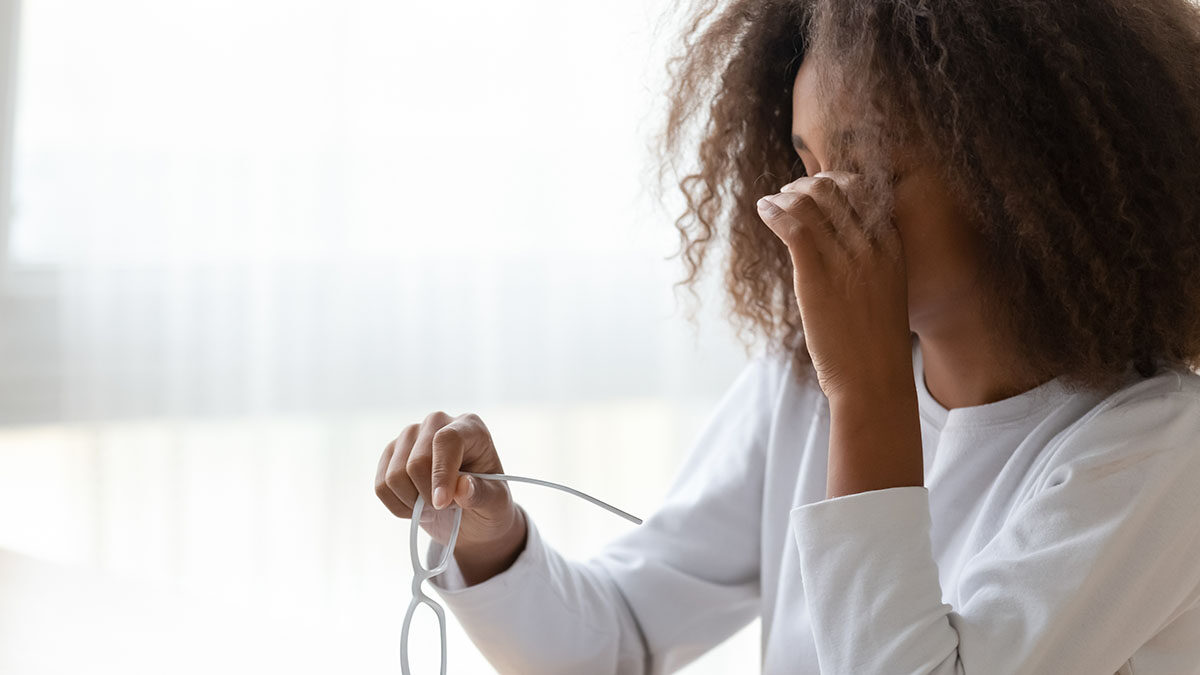One of the most common eye disorders, dry eye disease, causes irritation or discomfort, and can decrease functional vision, sometimes causing a dramatic deterioration in the quality of life. About five million Americans over age 50 suffer from moderate-to-severe dry eyes, and tens of millions more have mild or episodic manifestations of the disease, at a cost of more than $50 billion.
In terms of treatment, there are several drops and drugs that can help. We spend hundreds of millions of dollars on things like artificial tears, but currently there is no therapy available to actually fix the problem. If drugs don’t work, doctors can try plugging up the outflow tear ducts, but that can cause complications, such as plugs migrating and eroding into the face, requiring surgical removal. Alternatively, surgeons can just cauterize or stitch up the ducts in the first place.
There has to be a better way.
What about prevention? Dry eyes can be caused by LASIK surgery, affecting about 20-40% of patients six months after the operation. With a million LASIK procedures performed annually, that’s a lot of people, and sometimes the long-term symptoms can be severe and disabling.
There’s a long list of drugs that can cause it, including antihistamines, decongestants, nearly all the antidepressants, anticonvulsants, antipsychotics, anti-Parkinson’s drugs, beta-blockers, and hormone replacement therapy, as well as a few herbal preparations.
In the developing world, vitamin A deficiency can start out as dry eyes and then progress to becoming the leading cause of preventable childhood blindness. Vitamin A deficiency is almost never seen in the developed world, unless you do it intentionally. There was a report in the 1960s of a guy who deliberately ate a vitamin A-deficient diet, living off of bread and lime juice for five years, and his eyes developed vascularization and ulceration of the cornea, which you can see (if you dare) in my Treating Dry Eye Disease with Diet: Just Add Water? video. That was better than what happened to an unfortunate woman who was the member of a cult and tried to live off of brown rice and herbal tea: Her eyes literally melted and collapsed.
There are also a couple case reports of autistic children who refused to eat anything but French fries or menus exclusively comprised of bacon, blueberry muffins, and Kool-Aid, and became vitamin A deficient. A case in the Bronx was written up as vegan diet and vitamin A deficiency, but it had nothing to do with his vegan diet—the kid refused to eat vegetables, consuming only potato chips, puffed rice cereal with non-fortified soymilk, and juice drinks. “His parents lacked particular skill in overcoming the child’s tendency to avoid fruits and vegetables.”
A plant-based diet may actually be the best thing for patients with dry eye disease, those who wear contact lenses, and those who wish to maximize their tear secretions. People with dry eyes should be advised to lower protein, total fat, and cholesterol intake, and do the following:
- increase complex carbohydrates;
- increase vitamin A content (by eating red, orange, yellow, and dark green leafy vegetables);
- increase zinc and folate intake (by eating whole grains, beans, and raw vegetables, especially spinach);
- ensure sufficient vitamin B6 and potassium intake (by eating nuts, bananas, and beans);
- ensure sufficient vitamin C intake (by eating citrus);
- eliminate alcohol and caffeine;
- reduce sugar and salt intake; and
- consume six to eight glasses of water per day.
We know dehydration can cause a dry mouth, but could dehydration cause dry eyes? It may seem kind of obvious, but evidently it was never studied until recently. Is the answer to just drink more water? We know that those suffering from dry eye are comparatively dehydrated; so, researchers figured that tear secretion decreases with progressive dehydration just like saliva secretion decreases and gives us a dry mouth. And indeed, as one gets more and more dehydrated, their urine concentrates and so does the tear fluid. But, one can reverse that with rehydration, raising the exciting prospect that improving whole-body hydration by getting people to drink more water might bring relief for those with dry eyes. The researchers recommend eight cups of water a day for women and ten cups a day for men.
Find more on the importance of proper hydration in my How Many Glasses of Water Should We Drink a Day?, Does a Drink Of Water Make Children Smarter?, and Can Dehydration Affect Our Mood? videos.
To learn more on other topics related to eye health, check out:
- Preventing Macular Degeneration with Diet
- Dietary Prevention of Age-Related Macular Degeneration
- Prevent Glaucoma and See 27 Miles Farther
- Greens vs. Glaucoma
- Dietary Treatment of Glaucoma
- Dietary Treatments for Computer Eye Strain
- Can Diabetic Retinopathy Be Reversed?
In health,
Michael Greger, M.D.
PS: If you haven’t yet, you can subscribe to my free videos here and watch my live, year-in-review presentations:
- 2012: Uprooting the Leading Causes of Death
- 2013: More Than an Apple a Day
- 2014: From Table to Able: Combating Disabling Diseases with Food
- 2015: Food as Medicine: Preventing and Treating the Most Dreaded Diseases with Diet
- 2016: How Not To Die: The Role of Diet in Preventing, Arresting, and Reversing Our Top 15 Killers
